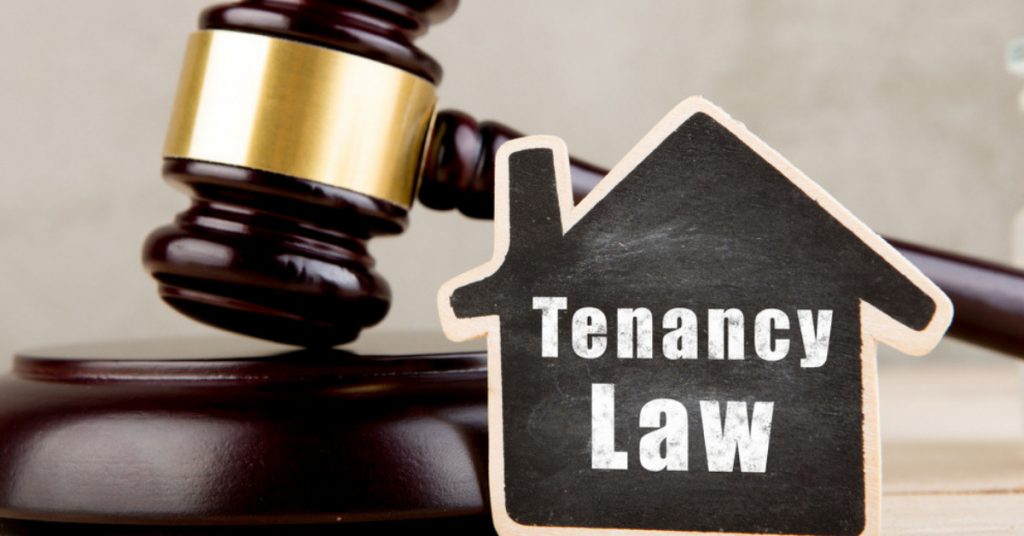Proposed Model Tenancy Act 2019

The ‘Model Tenancy Act 2019’ (MTA) has created a flutter among both landowners and tenants. There is even greater anxiety among trustees of trusts providing housing facilities to beneficiaries who are statutory tenants. MTA 2019 has not been finalized as yet and views/comments of the public and stakeholders as also the states and union territories will be welcomed by the government till 1st August 2019. Once finalized, the Model Act will be shared with the States/Union Territory (UTs) for adoption.

Where to read/download MTA?
To read or download the proposed Model Tenancy Act 2019 go to: http://mohua.gov.in/upload/whatsnew/5d25fb70671ebdraft%20Model%20Tenancy%20Act,%202019.pdf
Impact on rental market
Living in rental homes has its own set of advantages and disadvantages. With nearly thirty per cent of households in urban areas staying in rented accommodation, this regulation will have a significant impact on the rental market. The law, if implemented, will have rules for both residential and non-residential premises.
However, it needs to be clarified that the MTA will be applicable prospectively and will not affect existing tenancies.
Regulating the rental housing market
In her recent Union Budget speech, Finance Minister Nirmala Sitharaman had proposed regulating the rental housing market scenario which is currently fraught with disputes between tenants and landlords. Soon thereafter the Model Tenancy Act (MTA) was announced. This proposed MTA is expected to promote growth of rental housing and investment in the sector and promote entrepreneurial opportunities and innovative mechanism of sharing of space.
As per Census 2011, nearly 1.1 crore houses were lying vacant in the country and making these houses available on rent will complement the vision of ‘Housing for All’ by 2022.
The existing rent control laws are restricting the growth of rental housing and discourage property owners from renting out their vacant houses due to fear of tenant not vacating easily, or without an exit compensation, or en-cashing their interest in the property.
State subject
Under the Constitution of India land is a state subject (though acquisition and requisitioning of property is in the concurrent list) and therefore the Central Government has left it to the states and union territories to either implement the Model Tenancy Act or amend it according to specific needs.
Reportedly, the Maharashtra State Government may possibly adopt the Model Tenancy Act for new constructions and incorporate suitable amendments which would continue to provide protection to properties governed by the Maharashtra Rent Control Act.
Rent Control Act
Rent Control Act governs the leasing of properties and each state has its own adaptation. The current rental laws are archaic as they do not address the relationship between the Lessor and the Lessee realistically and fairly.
In India, the first Rent Act was passed in 1915 during the Bombay Presidency, and then in 1939. This was later replaced by the Bombay Rents, Hotel, and Lodging House Rates Control Act, 1947. By that time, thousands of buildings (popularly called as chawls) had been built in Mumbai. There were private landlords as also trust landlords and both earned decent rental incomes from properties owned or vested in them.
However, in 1948, the state legislature passed the Bombay Rent Control Act which restricted rent rates at a very low level. As a result, earnings on rental income fell and landlords began to neglect maintenance of the properties owned by them.
Though the Rent Act was amended in 1971 and again 1999, rents continued to remain extremely low.
Leave & License
Under the Leave and License agreement system the landlord becomes licensor and tenant becomes licensee and the property is given on license fee to the tenant and not on rent. The Leave & License system does not create any title, rights or interest in the property for the licensee and as such is deemed favourable to the owner of the property, be it a residential apartment, office space, building or a piece of land.
Proposed new law
Ministry of Housing and Urban Affairs, Government of India, is the apex body for formulation and administration of Rules and Regulations and Laws relating to housing and urban development in India and it has now drafted a ‘Model Tenancy Act 2019’ (MTA) which seeks to even out the rights and interests of both the owner and tenant and to create an accountable and transparent ecosystem for renting premises in a systematic and efficient manner. As the Rent Act stands today, it is mostly tilted in favour of the tenant.
It is believed the MTA will enable creation of adequate rental housing stock for various income segments of society including migrants, formal and informal sector workers, professionals, students etc., and increase access to quality rented accommodation and enable gradual formalization of the rental housing market. It will also help overhaul the legal framework vis-à-vis rental housing across the country. Finally, it is also expected to give a fillip to private participation in rental housing for addressing the huge housing shortage across the country.
Key features of the proposed MTA 2019
- It stipulates a robust grievance redress mechanism comprising of Rent Authority, Rent Court and Rent Tribunal;
- It seeks to cap the security deposit equal to a maximum of two month’s rent in case of residential properties and minimum of one month’s rent in case of non-residential property;
- It imposes penalty for failure to vacate a residential unit;
- The landlord is entitled to get a compensation of double the monthly rent for two months and four times of the monthly rent thereafter if a tenant does not vacate the premises after tenancy has been terminated by order, notice or as per agreement;
- The landlord cannot hike the rent in the middle of the tenure;
- The landlord cannot cut off or withhold essential supplies or services such as electricity and water under the new Act;
- The property owner must give prior notice of three months before revising the rent value;
- The tenant cannot sublet a part of or the whole property to someone else;
- It shall be the landlord’s responsibility to rectify structural damages and undertake measures like whitewashing walls and painting doors and windows;
- After coming into force of this Act, no person shall let or take on rent any premises except by an agreement in writing;
- The applicability shall be for the whole of the State i.e. urban as well as rural areas in the State;
- Within two months of executing rental agreement both landowner and tenant are required to intimate to the Rent Authority about the agreement and within seven days a unique identification number will be issued by the Rent Authority to both the parties;
- A digital platform will be set up in the local vernacular language of the State for submitting tenancy agreement and other documents.
- MTA 2019 shall not be binding on states and union territories since land is a state subject under the Indian Constitution.
- Also, MTA will not have any retrospective effect. Existing rental contracts shall remain outside the purview of the policy.
What’s New & Nice?
Rent Authority: Currently, rent agreements are registered at the sub-registrar’s office. In order to usher transparency, fix accountability and promote fairness in the rental housing segment, the policy proposes setting up of a competent ‘rent authority’.
After mutually discussing and agreeing upon the terms and conditions, the landlord and the tenant must prepare a written rent agreement. Both should then approach the rent authority and get the agreement registered with the rent authority.
The rent authority will set up a website where it would update the details of all rent agreements it has registered. This would be on the lines of the functioning of the real estate regulatory authorities.
Speedy dispute resolution: In case of a dispute, landlords and tenants will have to approach the rent authority for settlement. In case they are not satisfied with the order of the authority, they can challenge it in the rent court/rent tribunal within 30 days from the date of the order.
According to MTA, “In the areas to which this Act extends, only the rent court and no civil court shall have jurisdiction to hear and decide the applications relating to disputes between landowner and tenant and the court/tribunal should not take more than 60 days to dispose the case.”
Maintenance of the rented premises: The responsibility to maintain the premises lie with both the parties. The rent agreement will have to specifically mention who takes care of what, in case of damages. If the responsibility lies with the landlord and he refuses to do the needful, the tenant can deduct the money he spent on the same in the monthly rent. In a reverse situation, the landlord can deduct the amount from the security deposit. In case the amount is larger than the deposit, the tenant will be liable to pay the balance.
Compensation for overstay: After the termination of the rent period, the landlord will be liable to get double the monthly rent for two months and four times the monthly rent thereafter, for the use and occupation by the tenant.
Entering the rented premises: The landlord must give the tenant a notice of 24 hours in advance (this could be sent using any electronic medium) to enter the premise. The visiting time has to fall between 7.00 am to 8.00 pm.
Subletting: Tenants cannot sublet part or whole of the rented building without prior permission from the landlord. If they have permission to do so, tenants cannot charge an amount more than the rent they pay themselves.
Eviction: The landlord could move the rent court in case the tenant does not pay rent for two months. If the tenant corrects the situation within one month of the matter reaching court, they will be allowed to stay, if this is their only default in the course of that year.
In case the premises are not fit for habitation, the tenant would be within his right to leave it after serving a 15 day notice period.
The Act also seeks to penalize obstinate tenants for refusing to move out of their rental properties after the agreed-upon rental period expires. The landlord will be able to claim double of the monthly rent for two months and four times of the monthly rent after that as compensation.
Binding on successors: The terms of agreement executed between a landlord and his tenant will be binding upon their successors in the event of the death of the landowner or tenant. In such a case, their successors will have the same rights and obligations, as agreed in the tenancy agreement, for the remaining period of tenancy.
Challenges / lacuna
At first glance, the draft rules seem to be favorable for both tenants and landlords. However, there are two major challenges and lacunae particularly for the landlord.
Security deposit: Landlords cannot seek an amount more than two month’s rent as security deposit. This is likely to be a sore point for landlords. This deposit has to be returned to the tenant by the landlord when the tenant vacates.
Although well-intentioned, this cap may hurt landlords in cities where much larger security deposits have been the norm. A two-month security deposit will also not be enough to compensate the landlord if significant damage has been done to the property.
Rent revision: According to MTA, if a rent agreement is made for a specific period, the landlord cannot increase the rent amount within this period, unless a provision to that effect has been expressly stated in the agreement. The landlord will have to give a written notice, three months in advance before revising the rent. Landlord can increase the rent if he has incurred expenditure on account of improvement, addition, or structural alteration which does not include ‘repairs.’
Noshir H. Dadrawala